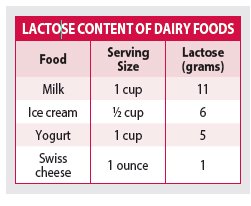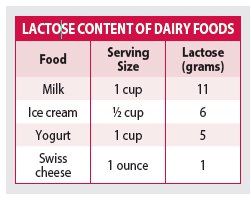Poop-Eating Puppies
Q I am a new subscriber and would appreciate receiving any information you have concerning dogs who eat other dogs’ poop. Our 8-month old doxie puppies continue this nasty habit despite numerous methods we have tried to stop them.
Emily Marek
Anthem, Arizona
Dear Ms. Marek,
A First, know that you are not alone in finding this behavior objectionable. But also be aware that the objection is species-specific. While humans find the habit, er, distasteful, young dogs often quite enjoy it. They may learn it from their mothers. Bitches keep the whelping (birthing) area clean after they deliver their babies by eating their young’s feces.
Rest assured that there is nothing harmful about the behavior. Your pups won’t get sick from it. But as far as trying to stop it, as Diana Ross sings in one of her hits, “there ain’t nothin’ you can do about it.” A dog’s gotta do what a dog’s gotta do. Some say that adding meat tenderizers or breath fresheners to a dog’s diet helps curb the habit, but that’s a myth.
Be glad your dogs don’t roll around in the stuff. Many do. Remember, dogs “see” largely through their sense of smell. When they roll around in something disgusting — another animals’ feces, muddy messes, carcasses — they’re not trying to be disgusting. They’re saying, “Look what I found! What a great day I had in the cow pasture,” and so on. It could also be a holdover from a time when dogs ran wild. Rolling in the excrement of another animal or rotting material masks a dog’s own odor, making him less detectable by potential predators — or by prey he’s staking out.
As for your own pets’ behavior, the only solution is to deny access by always walking them on a leash and making sure you keep their faces away from other dogs’ waste. But don’t get too exercised by this. Puppies grow out of the habit. Most move on by the time they’re a year or so.
Wondering if milk products are okay
Q Are dogs lactose intolerant, or can they have a small amount of ice cream? I have two Airedale terriers, Molly and Millie, and I walk them three times a day. Because we live in Florida, it’s still quite warm during the evening walk (I bring water for them) and when we return home, I like to give them a few shavings of ice cream in their bowls. It’s a small amount because Molly will gulp a full scoop and suffer brain freeze if I give her more. They’re happy, healthy, and enjoy having their ice cream, and if I forget, they will come and sit in front of me as if to ask, “Where is our treat?” But still, I worry. Someone told me dogs can’t handle dairy products, so I thought I better ask.
Kathy Lieberman
Venice, Florida
Dear Ms. Lieberman,
A Your question is on a lot of people’s minds. After all, dog owners are often advised to teach their dogs tricks with delectable treats like tiny morsels of cheese — another dairy food that could present problems for animals (or people) with lactose intolerance.
The fact is that many dogs do lack the digestive enzyme needed to break down lactose — the sugar in dairy foods — meaning that from a biochemical standpoint, yes, they are lactose intolerant. If they experience symptoms, they will mimic the same symptoms experienced by people who are lactose intolerant: gas, bloating, rumbling tummy, and sometimes diarrhea and vomiting.
But the operative word here is “if.” Not all dogs suffer from eating dairy products. In addition, it often depends on the type and amount of dairy product eaten and under what circumstances. A cup of milk has 11 grams of lactose, while a cup of yogurt has only about 5 grams, as does a half cup of ice cream. Hard cheeses like Swiss have only one gram per ounce. Of course, no dog should be drinking an entire cup of milk or eating a half cup of ice cream or a whole ounce of cheese. These adult-size servings are just meant for comparison’s sake.
High-fat dairy products like ice cream and cheese tend to cause fewer symptoms than low- or non-fat. That’s because fat slows the digestion of food, so if the lactose is a problem, the GI tract will not take as much of a lactose hit all at once.

The only way you’re going to be able to tell if your dogs can handle ice cream is through trial and error. You shouldn’t be letting your pets have more than a few licks at any rate, but that’s what’s in a couple of shavings. If the dogs seem not to suffer any untoward symptoms (including scooting), it’s likely you’re giving an amount they can handle.
Note that lactose intolerance is not a food allergy. Allergies involve the immune system revving up and sending in antibodies to handle the problem. Lactose intolerance, on the other hand, is simply a digestive issue. It will not cause a systemic reaction throughout the body — no itching, hives, and the like.
The best kind of dog to get
Q My husband and I had a dog when we got married, and she died when my two children were very little. But now the kids are six and eight — old enough that we feel we can devote the proper attention to a new pet. Any suggestions for the breed of dog to get?
Marci Heffernan
Sarasota, Florida
Dear Ms. Heffernan,
A It was a good idea to wait until your younger child was six. By that age, children have gained enough independence to allow you to focus on acclimating a new dog to your household, and enough understanding to be able to follow your directions on how to treat the dog and also be considerate of the pet’s feelings.
As far as what breed of dog to get, there is no one right answer. There are seven breed groups, and breeds from the sporting group — golden retrievers, Labs, all kinds of spaniels, and a number of other types — are often said to make good family pets. They tend to be low on aggression and relatively high on trainability. They also are physically insensitive compared to dogs of other breed groups, which makes them good bets for children who might need a little time learning how gently to stroke them and otherwise interact with them. But these dogs also do best with a high level of physical activity. Thus, making them sit home alone all day while both parents go off to work and the children go off to school is akin to making an Olympic athlete spend his or her life at a desk job.
If that’s the case in your household, you might want to consider a greyhound. Its more independent nature makes it easier for a greyhound to hang out alone. And many greyhounds that did not “make it” in the racing industry need good homes and are available for adoption.
Of course, not every single dog within a breed has the expected temperament. You really have to meet the dog with the whole family and get a sense of whether all of you make a good fit together.
We should note that we are big believers in mixed-breed dogs rescued from the pound. Again, you have to get a feel for whether a particular dog is right for you and your brood. The best bet is to bring the entire family to the shelter maybe two or three times and interact with the dog outside the cage to see whether the animal will have an easy integration into the life of your family. If so, you’ve got a keeper — with a price tag that’s relatively easy on the wallet.





